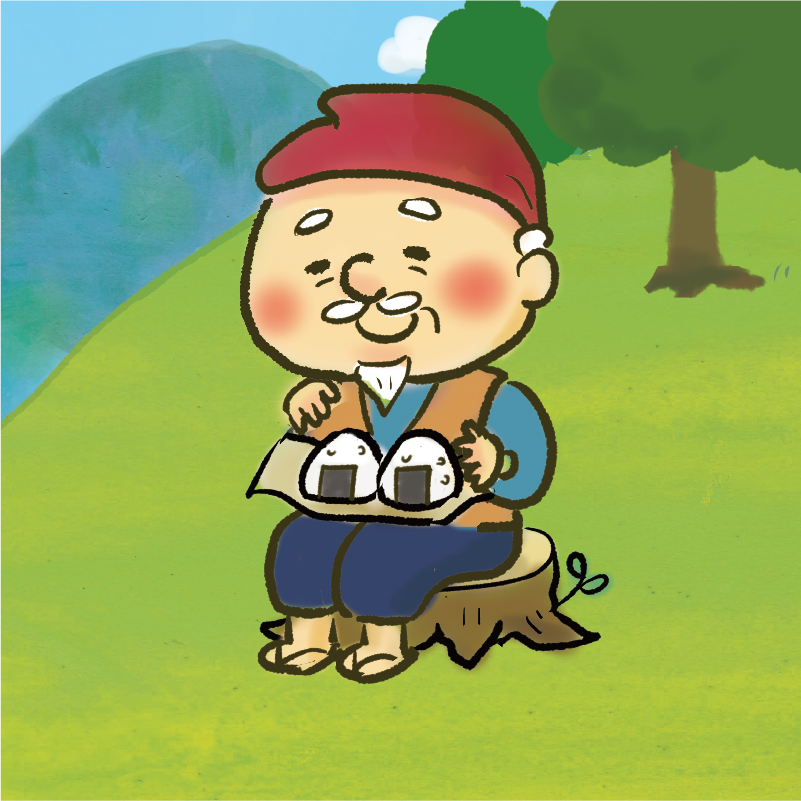
Play: Omusubi Kororin
 This play, based on a Japanese folktale, comes from a collection of plays and skits created by the ACT Japanese teachers’ group for use in their primary and junior secondary classrooms. Students work cooperatively in groups or as a class to prepare and perform the play for their classmates or at a school event.
This play, based on a Japanese folktale, comes from a collection of plays and skits created by the ACT Japanese teachers’ group for use in their primary and junior secondary classrooms. Students work cooperatively in groups or as a class to prepare and perform the play for their classmates or at a school event.
Story Outline
A kind old man drops his rice ball down a hole. When he looks down to retrieve it, he discovers a community of mice. The old man allows the mice to keep the rice ball and in return they put on a feast for him, and present him with a gift as he leaves. The greedy old neighbour hears of the kind old man’s good fortune and decides to do the same. However, being greedy, he tries to trick the mice out of all their gold, but things do not turn out as he plans.
Cast
ナレーター×2 Narrator×2
おじいさん Old man
おばあさん Old woman
よくばりじいさん Greedy old man
ねずみ×2 Mice (plus extra mice – any number)
Cultural Notes
Omusubi (Onigiri)
are rice balls. They are a popular and common snack food,equivalent to the western sandwich, often taken on picnics or journeys. They are commonly molded into a triangular shape, filled and wrapped in nori (seaweed). The most common fillings include umeboshi (pickled plum), okaka (bonito flakes flavoured with soy sauce) and tarako (salty cod roe). In the Heian period the nobility gave omusubi to the lower class people to eat outside. They used to be called tonjiki.
Mochi (O-mochi)
is essentially well-pounded rice which is formed into ‘cakes’ and eaten (or displayed) at religious occasions (such as new year). Mochi came to Japan from South East Asia along with rice cultivation. Mochi is best made with special, very-short grain rice called mochi-kome (mochi rice). See also はなさかじいさん
Mochi-tsuki
pounding of rice to make mochi . This requires a large mortar, a wooden mallet and considerable skill and coordination. Mochi-tsuki is usually done as part of New Year celebrations.
Language Concepts
- leave-taking
- meal etiquette
- onomatopoeia: korokoro, pekopeko, pettanko, nyaoo-nyaoo
Web Links
The Japan Foundation, Sydney ‘Classroom Resources’ Omusubi Activity




